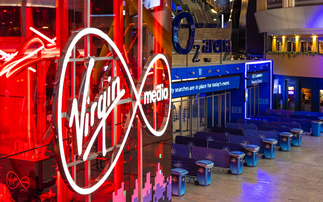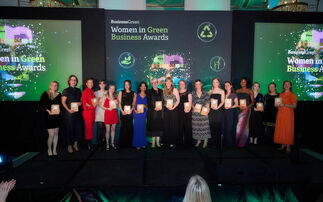Meeting the hugely ambitious peace and justice targets of SDG16 will mean developing effective, accountable, and transparent institutions across the world. The responsibility for engineering such a rapid improvement in global governance will inevitably fall to governments, but could a new breed of businesses play an invaluable supporting role?
A shift in corporate thinking is certainly underway. Larry Fink, boss of the world's largest asset manager Blackrock, has hymned the importance of purpose, BP CEO Bernard Looney last week argued corporates need to look beyond the profit motive to tackle the coronavirus and the climate crisis, and both the FT and the Economist have run editorials recently demanding fundamental reform to global economic governance.
But for much of the green and ethical business community none of this thinking is particularly new. Indeed, they have been contributing to SDG16 and the wider UN Sustainable Development Goals for years, reimaging how businesses should operate in the process. This shift in thinking has been put on a formal footing through the increasingly popular B Corporation business model, which could yet provide a mechanism for pioneering good governance practices and helping realign the relationship between the public and private sectors in support of SDG16?
Set up with the vision of "business as a force of good", B Corps are an attempt to address the problem of companies being primarily accountable to their shareholders, rather than wider stakeholders such as employees, customers, local communities or the environment.
Companies interested in joining the movement must undergo an impact assessment to see whether they pass the strict B Corp criteria. That includes adopting a 'triple bottom line' within their governance structure, so that they measure financial, social, and environmental performance. In the UK that means every B Corp must amend its articles of association to put people and planet on an equal footing with profit.
B Corps also need to pass a rigorous certification process every three years which requires, among other things, companies to disclose whether they are subject to any pending legal action. Becoming a B Corp therefore requires a certain degree of public transparency, since every company's assessment scores are published online and compared in international league tables.
Interest in the B Corp model has skyrocketed over the past year and there are now more than 2,500 certified B Corps in more than 50 countries around the world. "We're at an inflection point in the system," says John Featherby, founder of strategic consultancy Shoremount, which was one of the UK's first batch of B Corps. "Things are changing enormously and I'm no longer surprised by who picks up the phone."
It's not just SMEs that are embracing the B Corp principles. Larger companies are interested too, even though there are greater transparency requirements for wholly-owned subsidiaries of another business; their entire assessment must be available to download on the B Corp website. B Corps that have gone through this process include Innocent Drinks, which is owned by Coca-Cola, and Ben & Jerry's, which is owned by Unilever.
Dairy giant Danone is attempting to get its whole operation certified as a B Corp, having already had success with subsidiaries such as Danone North America. The company sees the process as a way of making a real contribution to SDG16, saying that, "in today's world, big companies and their brands are fundamentally challenged as to whose interests they really serve. B Corp certification is a mark of trust for companies demonstrating high standards of social and environmental performance".
Businesses serious about SDG16 see a need to try out different business models and take a broader view of their stakeholders, says Ulysses Smith, director of the business and rule of law programme at think-tank Bingham Centre for the Rule of Law. "We can't continue to do business the way it's been done for a long time," he argues.
Chris Turner, executive director of B Lab UK, the not-for-profit engine room behind B Corps, says the impact of such a structure can extend well beyond the company itself. "As you look to institutions to promote peaceful and inclusive societies, who can they rely on when it comes to partners in order to further those aims?" he asks. "Lots of those partners are going to have to be private sector ones and so it becomes increasingly important for governments and institutions to be able to identify partners that are not just bidding for contracts on a financial value case, but actually have embedded principles which are aligned with the SDGs."
Turner believes B Corps can be a force for good beyond procurement. "It's not just tendering for government contracts but business being the catalyst and forging those partnerships and bringing the community and local government and bigger institutions into the work that it's doing," he addds.
In fact, Turner sees B Corps as a movement and is advocating for a change to UK law to make it easier for companies to be governed in line with B Corp principles - as is already the case in the US with Benefit Corporation legislation.
B Labs has also recently launched SDG Action Manager, a tool for businesses to measure their impact across all of the SDGs and identify where they could do better.
Featherby stresses that B Corps are not going to create a peaceful, just world on their own. "How does change occur?" he asks. "Because we change the regulatory environment? Or does it change because lots of people take small decisions?
"Most of the work we've done over the past 10 years is reducing people's sense of isolation around change. Thousands of people took individual decisions to do something differently. Early on there was much more personal risk before - people didn't believe in it, it was new. But now their peer down the hallway is doing the same things it's become easier."
Perhaps a combination of modern business thinking and corporate peer pressure could yet unlock some much needed progress on a global peace, justice, and governance agenda facing some of the most challenging headwinds of any of the SDGs.







